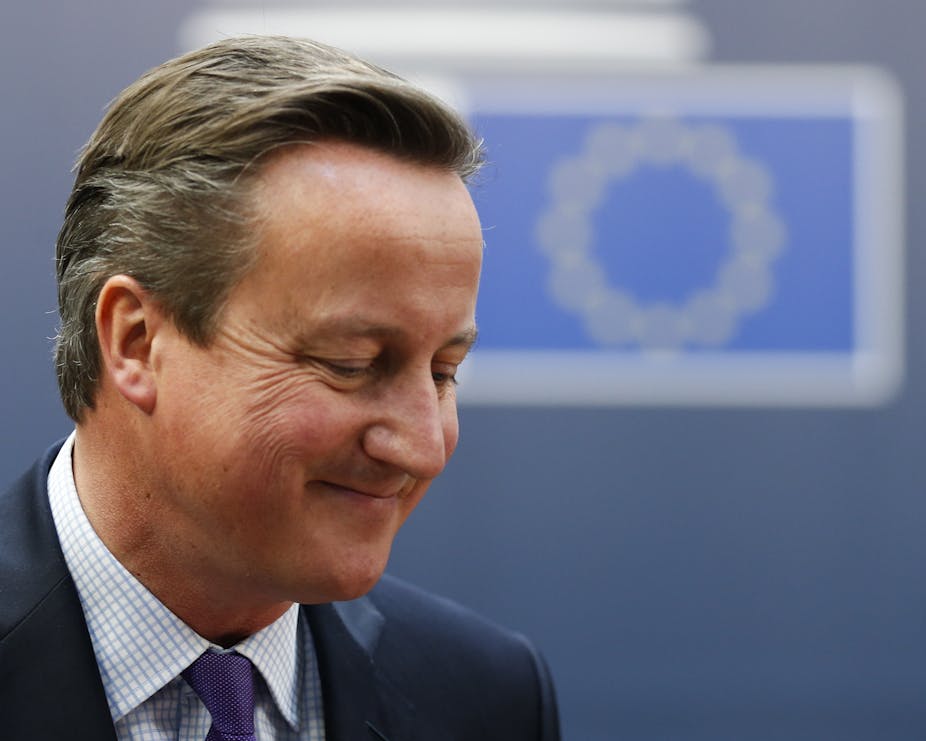The real surprise in David Cameron’s speech on Europe was not the content. The list of demands he plans to send to the European Union about renegotiating UK membership have been known for some time. What came as a genuine revelation was the pro-European tone of his message.
His commitment to campaign with “all his heart and soul” for Britain to remain in a reformed EU could have been made by Tony Blair, who, to date, was the most europhile of Britain’s prime ministers (British europhilia has always been of a reformist kind).
This coming out as a shy (but oh-so-English) pro-European will surely help him achieve what he wants from Europe. However, it has thrown up a plethora of difficulties at home. Eurosceptic backbenchers such as Bernard Jenkin, Peter Bone and Jacob Rees-Mogg could barely hide their disdain for what they evidently considered to be a disappointing list of demands.
And it is expected that a third of Conservative MPs still intend to campaign for Britain to leave the EU, even if Cameron’s wish list is fulfilled.
The making of a pro-European PM
Despite the views of some of his party members, it seems that five years of meetings with other European leaders and maybe even his time rubbing shoulders with Liberal Democrat coalition partners might just have changed Cameron’s outlook.
His list of demands suggests that he has toned down a certain Etonian disdain for so-called continental flummery and has acquired a better appreciation of how the EU functions.
Above all, it suggests that Cameron understood that as a declining middleweight European power, Britain will not be able to punch above its weight if outside the EU. With the notable exception of his demand to impose a four-year ban on the access to in-work benefits for EU migrants, his reasonable list of demands is on the whole (with some tweaking and reciprocal good will) achievable.
Cameron’s demands about completing the single market and increasing competitiveness, for instance, will be welcomed by many member states and by the European Commission. Indeed, plans are already afoot to extend the single market into energy and the digital economy. Work is also underway to cut red tape by scrapping legislation.
It is also likely that Cameron will find a sympathetic ear regarding his demands for a written guarantee that non-eurozone members will not be discriminated against in the EU.
Similarly, the proposal to give a more substantial role to national parliaments in policing the use of the subsidiarity principle (which determines where the EU is competent to legislate) echoes concerns expressed in other EU countries about a widening democratic deficit. If the institutions of the EU will resist proposals to give veto rights to national parliaments, member states such as the Netherlands and Denmark will support other forms of involvement.

Finally, there is a slim chance that the EU member states will agree on a formula that will accommodate Britain’s objection to “ever-closer union”. Denmark’s strategy – it negotiated four opt-outs from the Treaty of Maastricht in 1992 – could be quite instructive here.
It took skillful and patient diplomacy, but the Danish government managed to obtain a package that was binding and could be presented as a treaty. But that, crucially, was not an EU treaty. A similar solution could be tried to address Britain’s concerns with “ever-closer union”.
But being able to win most of his battles with the other 27 member states does not mean the prime minister’s European gamble will triumph. A third of his party does not believe that he is capable of delivering better terms of EU membership.
More importantly, it is unlikely that abstract achievements such as the completion of the single market in the energy sector will persuade undecided voters about the virtues of the EU. So if Cameron really wants Britain to remain in a “reformed” EU, he really had better start putting all his heart and soul into the pro-European campaign.

